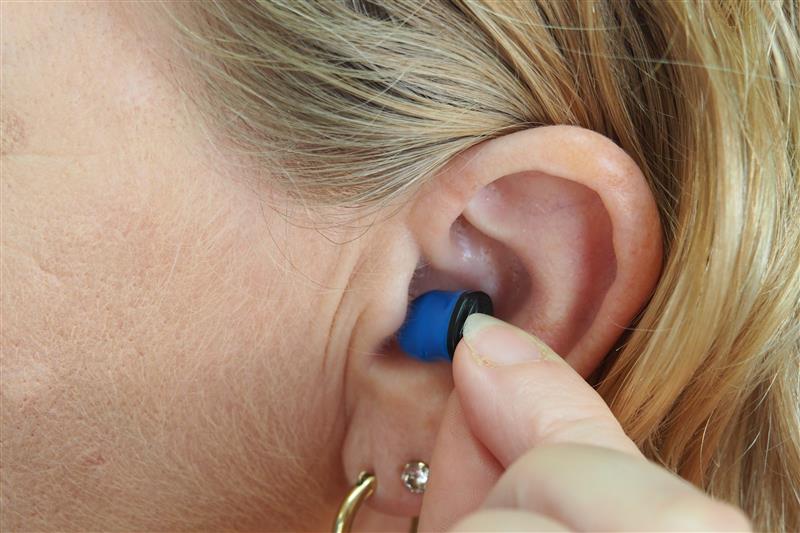
Adults with mild to moderate hearing loss who are 18 years of age and older should use OTC hearing aids. When asked if her hearing loss falls within that range, Candice Ortiz-Hawkins, an audiologist at the Capital Institute of Hearing and Balance in Silver Spring, Maryland, provided advice. "A person's hearing loss is likely more severe than the allowable range for OTC hearing aids to work," said Ortiz-Hawkins. "If a person requires speech to be loud, even in quiet surroundings, or has tremendous trouble participating in conversations or hearing in noisy environments.
An OTC hearing aid is what?
OTC hearing aids might be able to improve your ability to comprehend and communicate if you have a mild to moderate hearing loss. Air conduction is how over-the-counter hearing aids function. The sound is amplified and sent via the ear canal by the gadget.
OTC hearing aids can be purchased in-person or online at Trusted Source. To offer OTC hearing aids, a vendor does not require a specific licence. To purchase over-the-counter hearing aids, consumers do not require a fitting, a visit to the doctor, a hearing test, or a prescription.
Children or others with severe hearing loss should not use them.
How reliable are hearing aids purchased over the counter?
In the US, there haven't been many in-depth research on the effectiveness of over-the-counter versus prescription hearing aids.
The American Speech Language Hearing Association (ASHA) points out that over-the-counter hearing aids should only be used for mild to moderate hearing loss. The group issues a warning that people could not fully appreciate the benefits of OTC medications because they may underestimate the severity of their hearing loss.
Some individuals may need to visit an audiologist or hearing specialist, according to the Hearing Loss Association of America (HLAA). However, the HLAA asserts that for those with mild to moderate hearing loss who are unlikely to seek medical attention, OTC hearing aids may be a crucial first step.
The introduction of the new category of over-the-counter (OTC) hearing aids by the Food and Drug Administration in October 2022—for individuals with perceived mild to moderate hearing loss—set the ground for a potential revolution in how those with hearing loss approach their impairment. Many of the astonishing technologies now seen in prescription devices that are as much as 50% less expensive are present in some of these modern, medical-grade hearing aids. At Walgreens, the Lexie Lumen behind-the-ear variant costs $799 for a pair and even comes with telecoils. It offers functionality found in devices that might cost up to $2,000 or more at the average hearing aid clinic, with the exception of Bluetooth connectivity.
What you must understand before purchasing hearing aids
Hearing aids have advanced significantly. That expression was frequently used by members of the hearing loss community, audiologists, hearing technology specialists, and our test panellists. Entry-level devices are now as excellent as or better than the most costly hearing aids from five or six years ago thanks to a mix of technological development, rising demand, and law. Don't automatically judge the hearing aids on the market now by the one gathering dust in your drawer if you've used them in the past and had less-than-satisfactory results.
Make sure you're a good candidate for hearing aids if you've never thought about or used one before. Visit a doctor to get examined in order to rule out potential causes such earwax buildup or other illnesses. Before looking into hearing aids if you suddenly experience hearing loss, it's critical to get a thorough medical evaluation because this could be an indication of another condition. The best way to test your hearing is at an audiology facility, but you can also ask your doctor to do so when you go in for your yearly physical. Additionally, there are numerous online or app-based screening exams that can help you get a general notion of your hearing capabilities.
How we evaluated nonprescription hearing aids
Our testing procedure, which spanned several months, included both objective and subjective testing. We concentrated on assessing each device's maximum gain (how loud it could amplify sounds) and its frequency response for the objective testing (what frequencies of sound the hearing aid boosted and by how much, and how the characteristics of different sound modes varied).
We were startled to learn from our sources that there isn't an FDA oversight board that assesses the effectiveness or safety of any hearing-augmentation equipment, including hearing aids, despite the fact that PSAPs and hearables have a legally limited amount of gain based on ANSI guidelines.
Will obtaining an OTC hearing aid require a hearing test?
A qualified audiologist trained to configure hearing aids based on a person's unique hearing loss typically conducts hearing tests on people. The procedure is comparable to ordering prescription eyewear.
Hearing tests calculate the volume at which a sound must be in order for you to hear it clearly. Noises under 25 decibels can be distinguished by those with normal hearing (dB). 26 dB to 55 dB is the range for mild to moderate hearing loss. A person with modest hearing loss may be able to hear some spoken sounds, but they may have trouble hearing softer noises. A person with a moderate hearing loss could find it challenging to understand speech while another person is speaking at a typical volume.
It's ideal to keep yourself as educated with your hearing aids and a new breakthrough in the technology. Ask your query via Book an Appointment today. For more information visit https://hearing.careinc.ca or you can call us today at (403)605-6300